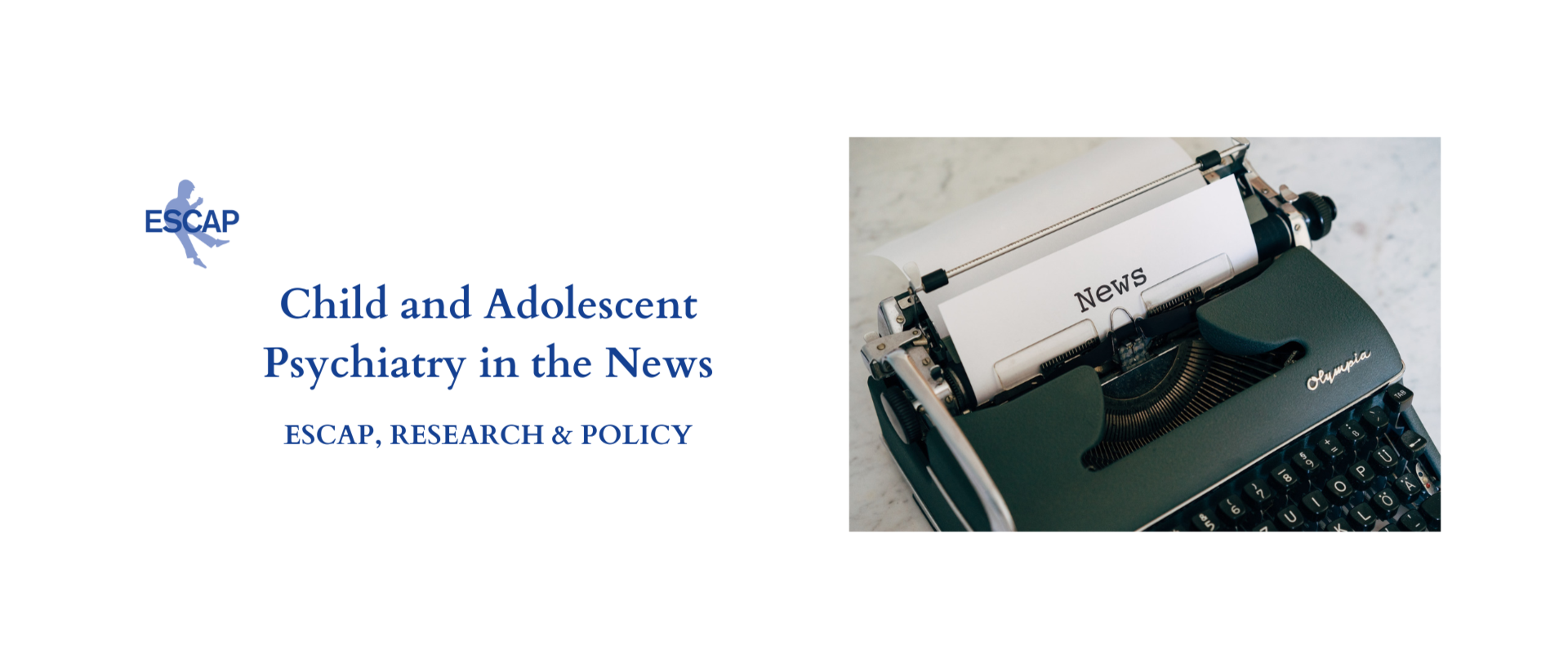
Find a selection of ESCAP and CAP news in this section. Sign up to our newsletter for monthly updates directly to your inbox and follow us on X (formerly Twitter) and LinkedIn to keep up to date.
ESCAP strongly supports and welcomes the EU mental health initiatives by the EU Commission, Council and Parliament regarding. It is time and finally a chance to make a difference for the benefit of young people’s mental health in the European region!
Read our latest ESCAP Communication here.
See also ESCAP's mental health positions ahead of this year's European Parliament elections.
Established in December 2023, the EU launched their first Union list of critical medicines. The list contains medications whose continued supply is deemed a priority in the European Union, with an aim to prevent harm to patients and ensure the smooth functioning of healthcare systems function. Given the high level of impairment associated with untreated ADHD, and the fact that, in many countries, methylphenidate is the only available compound to treat ADHD, we were surprised that the list does not include methylphenidate.
The Commission adopted the Recommendation on developing and strengthening integrated child protection systems in the best interests of the child, as a commitment in the EU Strategy on the Rights of the Child.
The Recommendation will support Member States in strengthening their child protection systems. Authorities at all levels of governance and civil society across all sectors need to work together to protect children from all forms of violence in a coherent and systemic way.
In October 2023, ESCAP contributed to the EU consultation on integrated child protection systems. Read our statement here.
Download Recommendations (available in English, German, French)
The FAMILY consortium has published an article in our ECAP journal: "Running in the FAMILY: understanding and predicting the intergenerational transmission of mental illness". Find out more about the Horizon Europe project and its objectives. ESCAP is delighted to be a partner in this important project and we would like to thank all consortium members for the fruitful collaboration.
The EU have launched their updated and enhanced Funding and Tender Portal. It features advanced search capabilities, tailored recommendations and enhanced filtering. You can watch a short video explaining the changes.
The Health Behaviour in School-aged Children (HBSC) study is a large school-based survey carried out every four years in collaboration with the WHO Regional Office for Europe. The 2021/2022 HBSC survey data are accompanied by a series of volumes that summarize the key findings around specific health topics. This report, Volume 2 in the series, focuses on adolescent peer violence and bullying, using the unique HBSC evidence on adolescents aged 11, 13 and 15 years across 44 countries and regions in Europe, central Asia and Canada. It describes the status of adolescent peer violence (bullying, cyberbullying and fighting), the role of gender, age and social inequality, and how adolescent bullying and fighting behaviour has changed over time.
With view to the 2024 elections for the European Parliament, the ESCAP Board agreed recommendations and demands with regard to ensuring that the mental health of children and young people are being treated as a priority throughout the next legislative period 2024-2029.
During 2023, the EU Commission, EU Council and EU Parliament have all released initiatives and statements addressing the mental health crisis we are experiencing. We welcome all participatory initiatives and now need to see concrete actions. During the next legislature period, we expect the new EU Parliament to expand and implement the important fundamental resolution from 2023. Addressing the Mental Health crisis is a continuous task that needs to be taken seriously and must not be dropped in the light of other developments.
ESCAP’s Positions – European Parliament Elections 2024 (English)
Positions de l’ESCAP – Elections du Parlement européen 2024 (Français)
ESCAP’s Positionen – Wahlen zum Europäischen Parlament 2024 (Deutsch)
Posiciones de ESCAP – Elecciones al Parlamento Europeo 2024 (Español)
Children's lives are increasingly blended between the digital and physical worlds, intertwining virtual and real experiences in their daily routines. Ensuring online safety for children is becoming a growing concern within the WHO European Region.
Most children grow up with digital devices that give them constant access to the Internet. While this may bring benefits and open up possibilities, it can also allow significant harms for children’s development and physical and mental health.
This conference edition of the WHO Regional Office for Europe’s Position Statement on Making the WHO European Region the Healthiest Online Environment for Children aims to support governments in formulating consistent requests to online and technology companies, with the overall goal of securing healthy online environments in which children can thrive. The position paper addresses the need to protect all children up to the age of 18 from violence, exploitation and abuse; highlights the need to include children’s rights in all actions; and addresses privacy and data protection issues.
The EU4Health Civil Society Alliance, gathering more than 30 health civil society organisations, has defined its priorities and recommendations ahead of the upcoming European elections in 2024, with the overarching goal of securing health on the EU political agenda. The manifesto gathers 10 key priorities, focusing on strengthening EU policymaking in public health, delivering stronger policies improving public health, and breaking policy silos:
The clinical management of Child sexual abuse (CSA) demands specialised skills from healthcare professionals due to its sensitivity, legal implications, and serious physical health and mental health effects. Standardised, comprehensive clinical practice guidelines (CPGs) may be pivotal. In this systematic review published in The Lancet Regional Health Europe by Otterman et al, existing CSA national CPGs (NCPGs) from European countries were examined to assess their quality and reporting.
ESCAP strongly supports the authors' call for the development of a pan-European guideline.
The EU is one of the most equal and prosperous regions in the world. Yet, the rights of far too many children within its borders are under threat or even denied. Too many children in the EU face persistently high rates of poverty and social exclusion, mental health challenges, and environmental dangers such as air pollution.
UNICEF's new report The state of children in the European Union summarizes analyses by UNICEF on child well-being and progress for children in the European Union (EU) during the period of the current EU legislature, 2019-2024, identifies key issues for the next political cycle and makes recommendations on how to address those.
The report is accompanied by four policy briefs covering child poverty, mental health, the environment and digital technologies.
This Scoping Review by Gossmann et al was conducted following the terrorist attacks on Israel in October 2023 and is now available online in our ECAP journal.
The ESCAP Board released two statements and we are reiterating the call for a humanitarian ceasefire.
Statement of the ESCAP Board on children taken as hostages in the context of the recent terrorist attacks in Israel
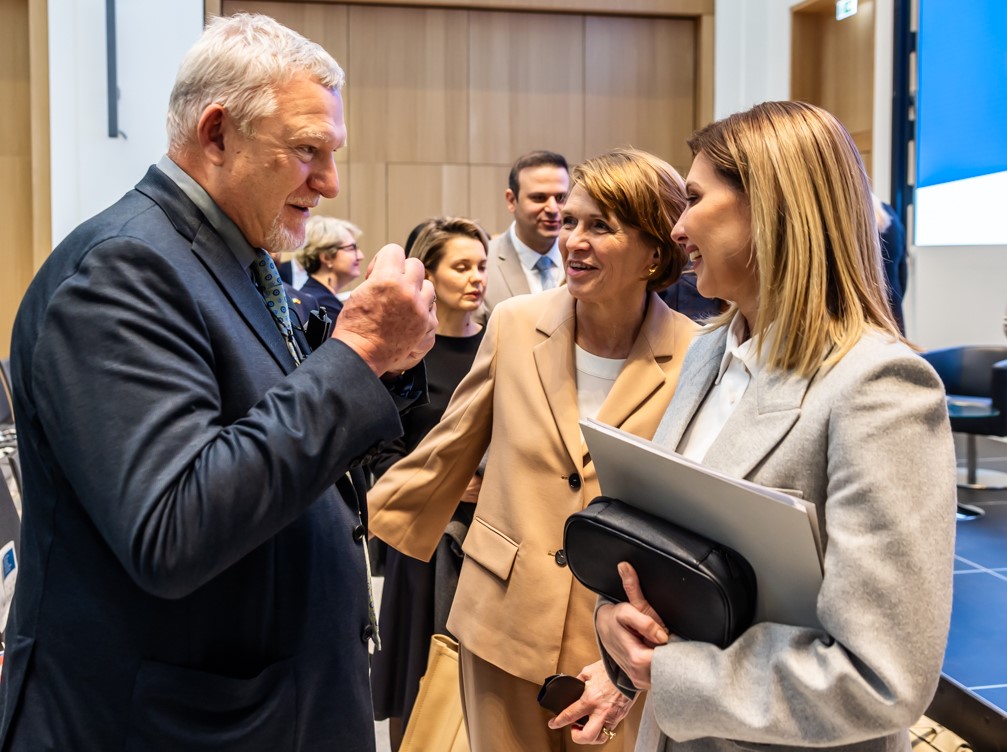
A medical conference to support mental health, psychosocial support and rehabilitation in Ukraine took place in Berlin on 1 and 2 February 2024. The conference was held under the patronage of the two First Ladies Olena Zelenska and Elke Büdenbender and focussed on trauma care and the prevention of long-term consequences. The spectrum ranged from acute trauma surgery care and medical support by taking over patients with oncological diseases that can no longer be treated in Ukraine, especially in the paediatric and adolescent sector, to traumatic war injuries that cannot be treated or are difficult to treat given the destruction of hospitals by air raids.
Professor Jörg M. Fegert had been invited to speak in both his capacity as head of the Department of Child and Adolescent Psychiatry/Psychotherapy at the University Ulm and ESCAP President.
Read his conference report here.
For further information and photos
Further formalizing our links with WHO Europe, ESCAP officially joined the pan-European Mental Health Coalition this month where we will be represented by the Co-Chairs of our Policy Division, Maja Drobnič Radobuljac and Robert Vermeiren.
The Coalition is a partnership dedicated to improving mental health across the WHO European Region. It targets gaps in mental health services by gathering national leaders, professionals, members of civil society, representatives of international organizations and experts to collaborate on bringing mental health out of the shadows and into the mainstream.
Key priorities for the Coalition are to transform mental health services and integrate mental health into emergency response and recovery efforts, as well as promoting mental health and preventing mental ill health across the life course.
The 1st FAMILY Stakeholder Dialogue Event took place on January 17th, 2024 and 42 participants from across Europe attended the online event. The main objective was to collect the views of mental healthcare professionals on the ethical aspects and social consequences of prediction of risk of severe mental illness. Risk prediction for mental health problems is a prominent focus of research in psychiatry. However, risk prediction comes with ethical and social challenges, such as questions about informed consent, the right not to know, risk of stigmatisation and discrimination, empowerment and strengthening resilience of affected families, responsible use of Artificial Intelligence etc. In break out groups case studies were discussed and the results shared in the plenum.
Read more in our post-event report.
The midterm revision of the EU Multiannual Financial Framework for 2021-2027 was agreed by the EU Council. To finance the priorities identified, cuts were made in a number of areas, including EUR 2,1 billion being redeployed from Horizon Europe and EUR 1 billion will be redeployed from the EU4Health programme.
Prospects for Children in 2024: Cooperation in a Fragmented World is the latest edition of the Global Outlook, a series of reports produced each year by UNICEF Innocenti – Global Office of Research and Foresight, which look to the key trends affecting children and young people over the following 12 months and beyond.
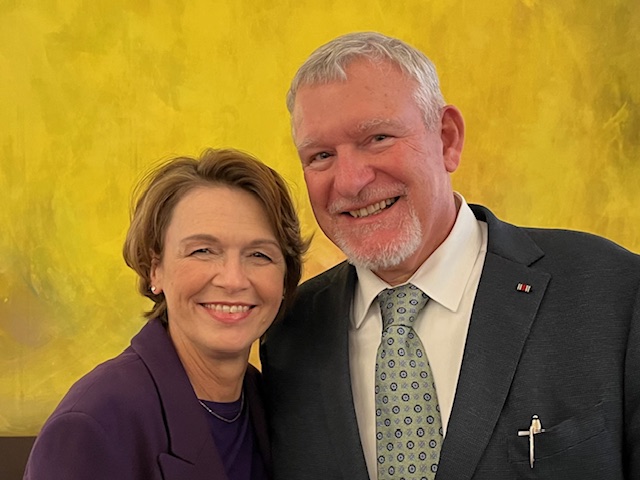 On Friday, ESCAP President Jörg Fegert attended the New Year's Reception of Germany's First Lady Ms. Büdenbender at Bellevue Castle in Berlin. In her speech, Ms. Büdenbender highlighted the importance of mental health, especially of young people.
On Friday, ESCAP President Jörg Fegert attended the New Year's Reception of Germany's First Lady Ms. Büdenbender at Bellevue Castle in Berlin. In her speech, Ms. Büdenbender highlighted the importance of mental health, especially of young people.
You can read the full speech (in English) here.
The new WHO Europe report summarizes findings from the Health Behaviour in School-aged Children (HBSC) survey round 2021/2022 regarding the unequal impact of the COVID-19 pandemic on adolescents’ health and health behaviours in 22 countries and regions of the WHO European Region.
The survey showes that the pandemic and imposed restrictions had an unequal impact on adolescents, being more negative for those who were vulnerable to health problems and thereby further increasing pre-existing inequalities.
Based on the findings, the report includes recommendations on the implications these should have for policy-making going forward. Understanding the COVID-19 impact on more disadvantaged groups is essential to avoid increases in the social gradient in health.
The European Commission published the first Union list of critical medicines, together with the European Medicines Agency (EMA) and the Member States' Heads of Medicines Agencies (HMA). The publication follows the commitment made in the Commission's Communication on addressing medicine shortages in the EU to accelerate the work on this list, originally announced in the EU's pharmaceutical reform proposal. It is an important part of the EU's efforts under the European Health Union to ensure patients have the medicines they need, by fostering the security of supply of critical medicines and preventing shortages from occurring. It is also part of the EU's efforts to improve its resilience and strategic autonomy in the face of geopolitical and unexpected challenges.
A medicine is listed as critical when it is essential to ensure the provision and the continuity of quality healthcare, and to guarantee a high level of public health protection in Europe. This first Union critical medicines list contains more than 200 active substances used in human medicines, which are considered essential in the EU/EEA.
The inclusion on this list is not an indication that a medicine is likely to experience a shortage in the near future. Rather, it signifies the critical importance of averting shortages for these specific medicines, as its unavailability could cause significant harm to patients and pose substantial challenges to health systems.
MEPs adopted their recommendations on prioritising mental health, as an integral part of a person’s health, in EU and national policies. MEPs call on the Commission to draw up a long-term, comprehensive and integrated EU Mental Health Strategy. Member states should develop corresponding national strategies with clear timelines, adequate budgets, concrete targets and indicators to monitor progress.
As the ongoing humanitarian crisis in the Gaza Strip now threatens epidemics according to the WHO and basic living and health needs can no longer be guaranteed, the foundation is missing. Not only for the survival of children and young people who were born victims of a conflict in this region, but also for their educational opportunities and mental health, which are massively jeopardized in the long term by potentially traumatizing conditions. This is how a new round of the cycle of violence is created. We fully support the WHO’s call for the protection of humanitarian space in Gaza issued on Tuesday (12/12/2023).
We believe it is important to unambiguously make it clear that the current humanitarian crisis will have long-term consequences for individual development. Basic needs must be guaranteed immediately! We call for immediate and long-term psychological support for children and families in the area and for a durable political solution with peace for children, no matter what nationality their parents are.
The EU Council highlights the importance of addressing mental health and well-being in different contexts in the life course, which benefits both individuals and societies. It recognises the beneficial role of communities, schools, sports and culture in strengthening mental health and life-long mental well-being.
The conclusions invite member states to elaborate actions plans or strategies with a cross-sectoral approach to mental health, addressing not only health, but also employment, education, digitalisation and AI, culture, environment and climate factors, among other things.
ESCAP invites all member societies to approach their national governments with view to implementing these conclusions and highlighting the importance of considering the mental health of children and adolescents in particular.
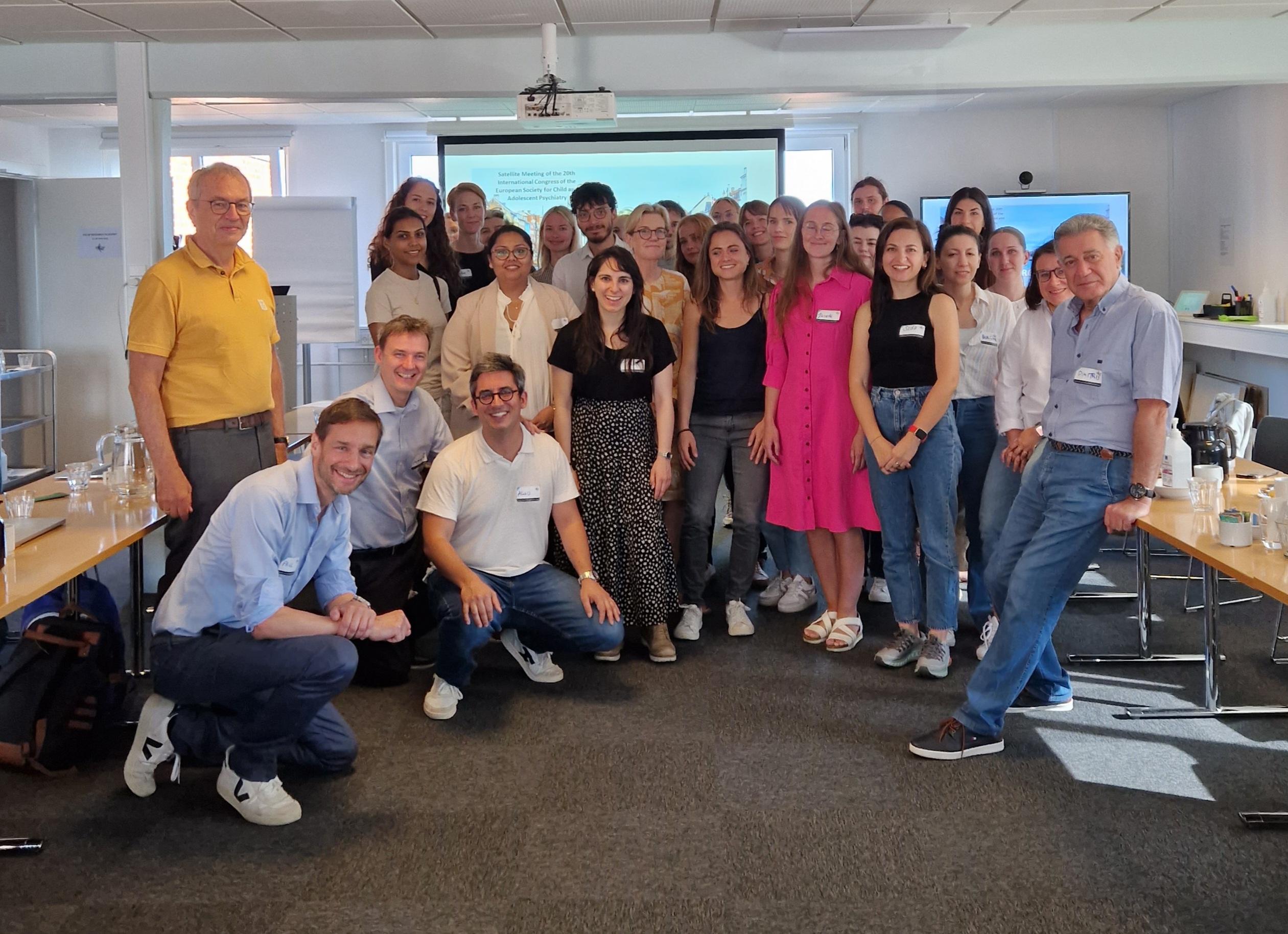
The 6th workshop of the ESCAP Research Academy (RA) took place from June 27th to 28th, 2023 in Copenhagen, just prior to the ESCAP Congress. 25 fellows from 14 ESCAP member countries (Belgium, Cyprus, Denmark, France, Germany, Hungary, Lithuania, Norway, Serbia, Spain, Sweden, Switzerland, Turkey, and the UK) were selected to take part. In addition, we were delighted to welcome a participant from India this year.
A review of the workshop has now been published as an ESCAP Communication in our ECAP journal.
This framework was developed to answer a strong and consistent request from WHO pan-European Coalition members that young people be actively engaged in activities undertaken by WHO which impact young people’s mental health and well-being across the European Region, whether it be policy or guidance development, research or programming. Young Coalition members initiated development of the framework to ensure that the active participation of young people was carried out in a way that was consistent, meaningful and, most importantly, underpinned by what young people want and need to feel safe and empowered to engage.
ESCAP is shocked and deeply saddened by the recent terrorist attacks in Israel and the escalating violence and horrors in Israel and Gaza that ensued and are still on-going. Our thoughts and sympathy are with the victims and everyone affected by these horrific events.
In our positional statements "War hits children first" and "The impact of war" we highlighted that it is always children who are hit first and trauma research shows the devastating consequences and what our profession can contribute to support and treat these children.
We call for the immediate release of the children taken hostage and the provision of care for them in the aftermath of their ordeal. Caregivers taken as hostages with their children and siblings should be freed together with them, as they play an important role in the direct support of their children.
We fully support UNICEF's statement from 24 October 2023 and their call for ceasefires and for sustained and unimpeded access for humanitarian assistance.
The EU Commission is working on an initiative that aims to support the development and strengthening of integrated child protection systems in the EU.
Focused on children’s needs, the initiative aims to encourage all relevant authorities and services to work together in a holistic way, from preventing abuse of and violence towards children, to protecting them. It is also intended to present how to better use existing EU tools (laws, policies, funding) to make child protection systems more integrated and robust, by avoiding silos.
As part of the initiative, they ran a public "Have your say" consultation to which ESCAP provided feedback. Read our response here.
You can read more about the initiative and all submitted responses on the "Have your say" website of the EU Commission.
Yesterday, a new Eurobarometer on mental health was published which shows that nine in ten respondents (89%) consider that mental health promotion is as important as physical health promotion. At the same time, less than half of respondents agree that people with mental health issues receive the same level of care as those with a physical condition. Moreover, almost half of respondents (46%) experienced an emotional or psychosocial problem, such as feeling depressed or anxious, in the past twelve months. More than half of these respondents (54%) with a mental health issue have not received help from a professional, according to the survey.
The Flash Eurobarometer was conducted between 14 June 2023 and 21 June 2023. A total of 26,501 respondents aged 15 and over from 27 EU Member States were interviewed via computer-assisted web interviewing.
WHO-OHCHR launch new guidance to improve laws addressing human rights abuses in mental health care
Ahead of tomorrow's World Mental Health Day, the World Health Organization (WHO) and the Office of the High Commissioner on Human Rights (OHCHR) have jointly launched a new guidance, entitled “Mental health, human rights and legislation: guidance and practice”, to support countries to reform legislation in order to end human rights abuses and increase access to quality mental health care.
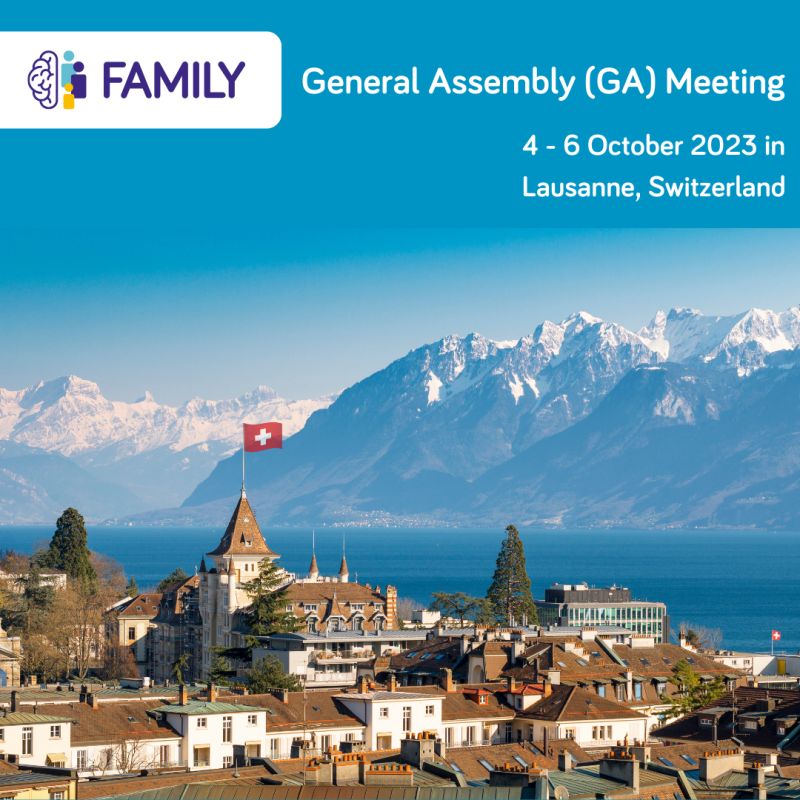
The General Assembly of the EU Horizon FAMILY project took place in Lausanne, Switzerland. This 5 year project "Running in the FAMILY – Understanding and predicting the intergenerational transmission of mental illness" started a year ago and it was great to meet with all project partners and find out about the progess in the different work packages.
Follow the project on X and LinkedIn and/or visit the project website for updates.
A new, free online course "A life with ADHD" from the University of Geneva and including international experts Samuele Cortese, David Coghill and Tobias Banaschewski can now be accessed on YouTube and Coursera. The course was developed for people affected by attention deficit disorder, their families, and the professionals who care for them. It is available in English and French.
More information - as well as other resources on ADHD and other disorders - can be found in our Resource Centre on the ESCAP website.
Methylphenidate for ADHD is not on the WHO Model List of Essential Medicines. A correspondence arguing that it should be has been published in The Lancet Psychiatry. Together with 15 other national/international associations, ESCAP endorsed this correspondence.
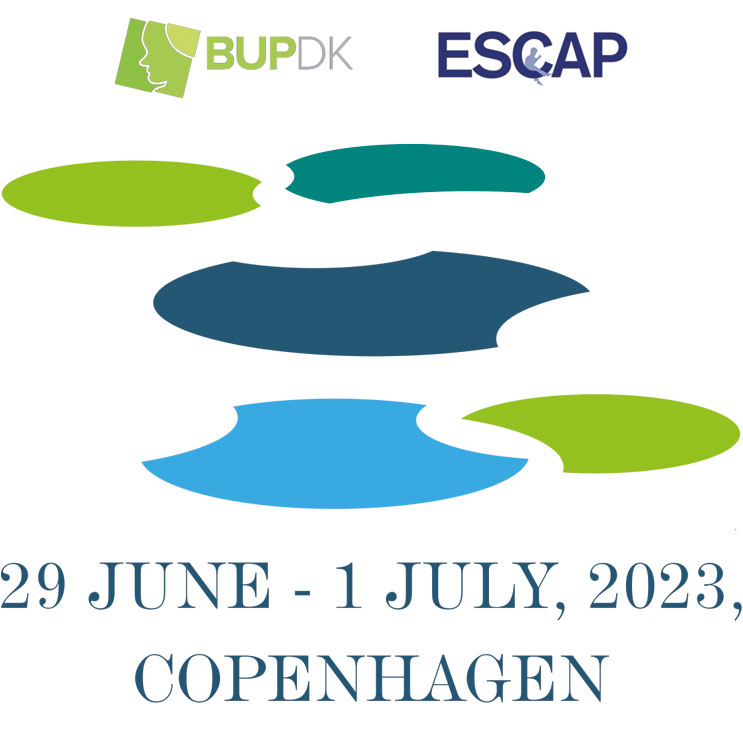
More than 1,600 delegates from all over the world attended the 20th International ESCAP Congress and enjoyed an outstanding scientific programme and the personal exchange and networks with colleagues.
On our YouTube Channel, you can watch interviews with some of our Keynote and State of the Art lectures as well as the Opening and Closing Ceremony of the Congress.
Review of the congress including photos and our poster prize winners.
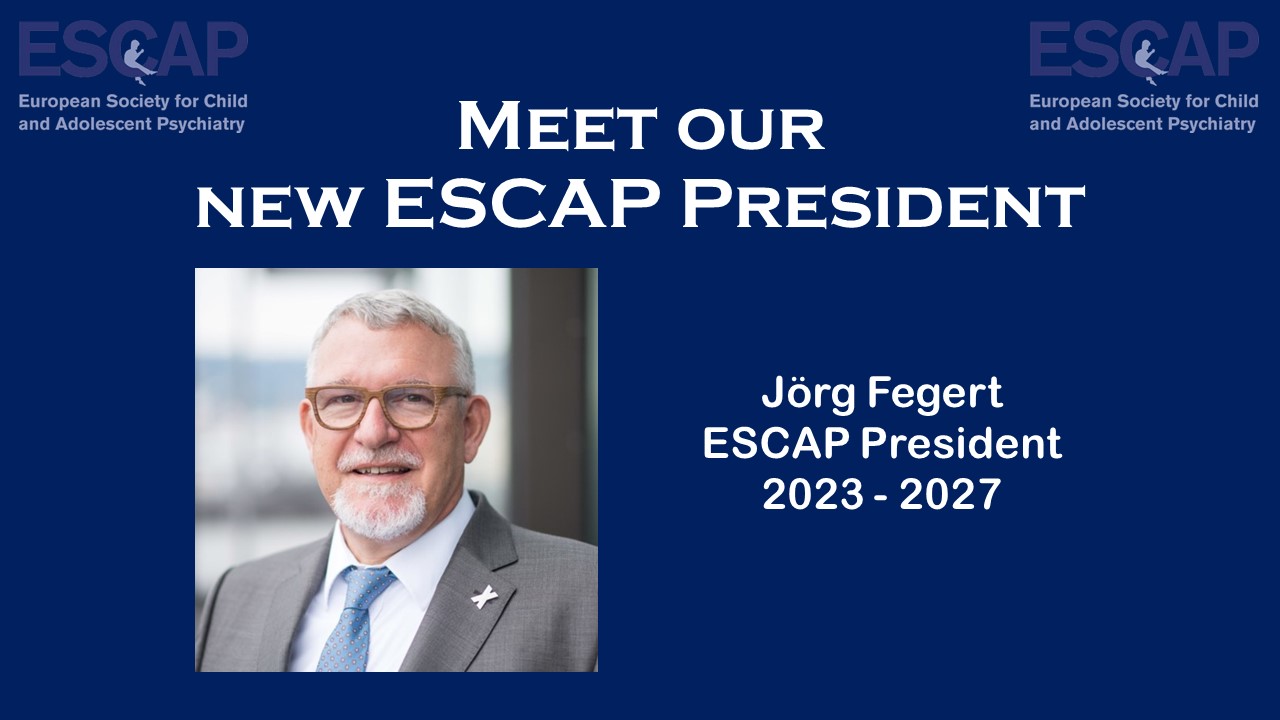
Jörg Fegert started his term as ESCAP President. Jörg joined the Board in 2019. Before taking on the role of President, he chaired the ESCAP Policy Division.
Jörg is based in Ulm, Germany and his personal field of interest is care of traumatized children and child protection issues in medicine and in an interdisciplinary background.
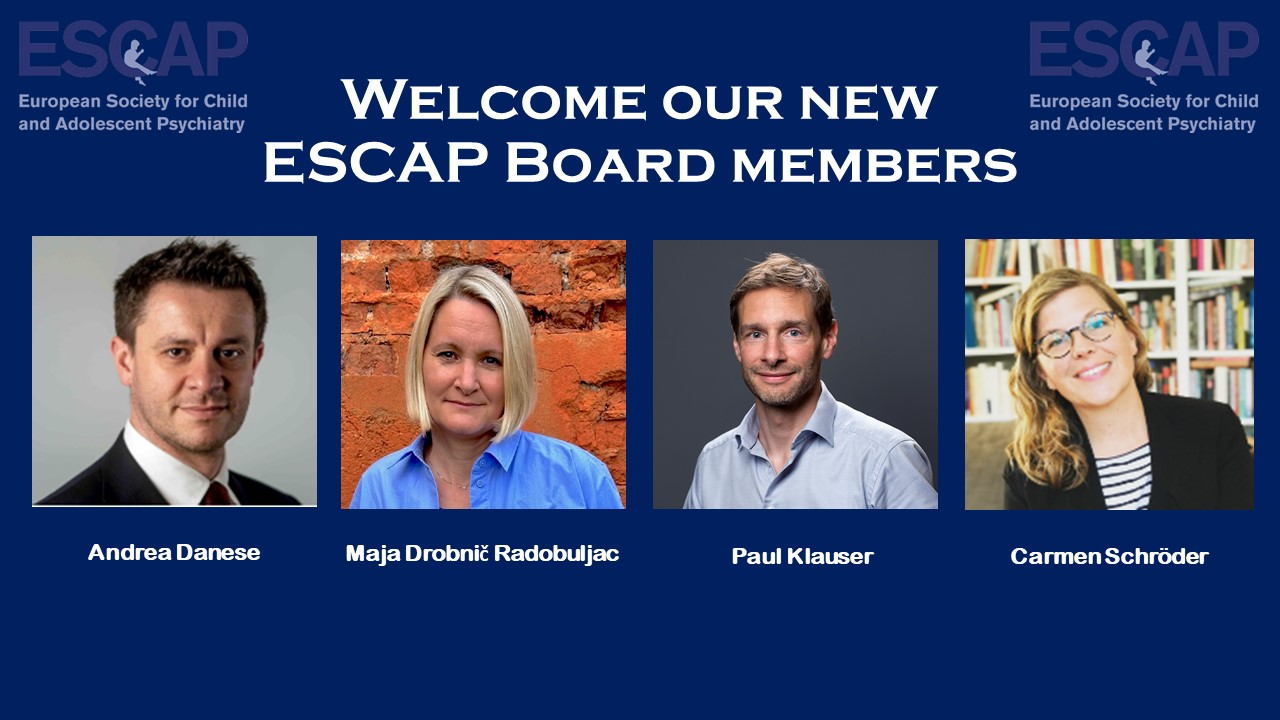
We warmly welcome our new Board members:
Over the last years, Child and Adolescent Psychiatry services are confronted with a growing number of children and adolescents with severe and enduring mental health problems. Unfortunately, state of the art psychotherapeutic and pharmacological interventions are insufficient to help them. Subsequently, a number of youths lose perspective and feel abandoned by society and do not believe that they can be helped. Therefore, innovative ways of providing care must be explored.
In that perspective, we need to explore the possibilities of the growing body of youth peer support workers (YPSWs) in child and adolescent psychiatry (CAP).
The EU HPP (Health Policy Platform) Mental Health in all Policies (MHiaP) Thematic Network have released a statement on "A Mental health in All Policies approach as key component of any comprehensive initiative on mental health". The statement is calling for a Mental Health in All Policies (MHiaP) approach, i.e., for public policies across sectors to promote population mental health and wellbeing by initiating and facilitating action within different non-health public policy areas. The vision is that of a Europe where everyone’s mental health can flourish across the entire life course and everyone can have timely, appropriate and affordable access to support, when needed. ESCAP officially and fully endorses this statement.
Last week’s earthquake in southern and central Turkey and northern and western Syria shocked the world. The number of lost lives and those injured still continues to rise. Our sincere sympathy and solidarity go out to everyone affected and we offer our condolences to the bereaved families and the injured.
Following the disaster, we have seen National, European, International NGOs as well as communities and individuals coming together to provide financial help and support on the ground. We are grateful for all these valuable efforts which also contribute to enabling returning to a certain degree of normalcy. As the first rescue teams are now pulling out, we want to stress how important it is to offer long-term support in these situations.
While the initial focus of the rescue has been on physically assisting the victims, the psychological consequences of such tragedies are immense and must not be ignored. Not least, as we are seeing a rise in natural disasters across Europe, it’s necessary that we develop processes to address these issues and offer immediate psychological support, especially to children and adolescents.